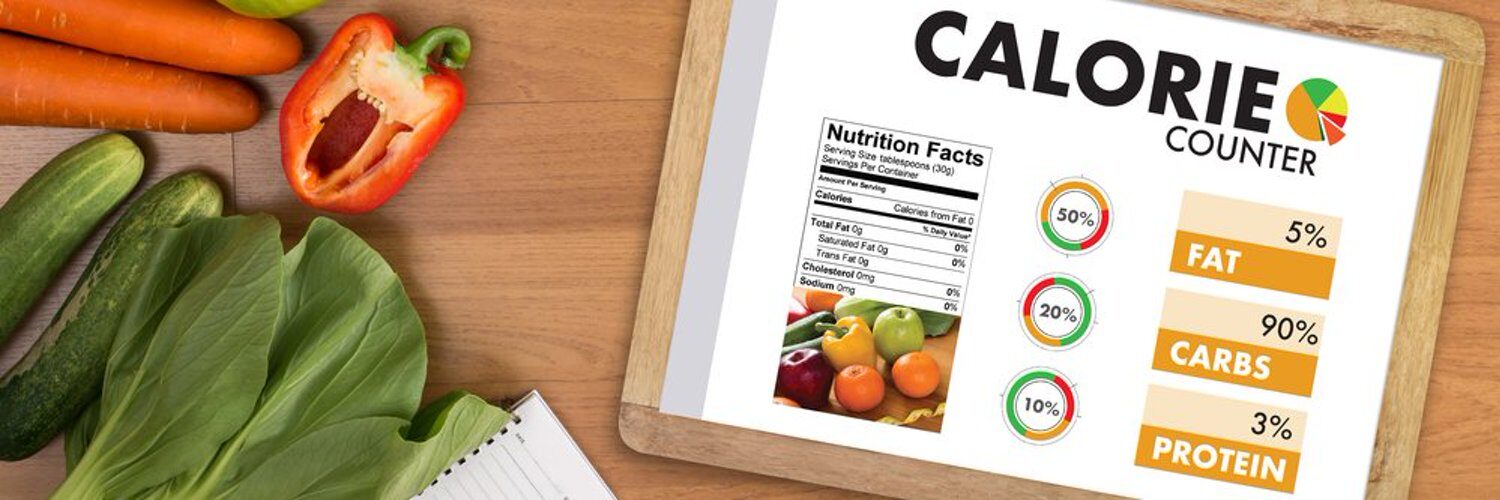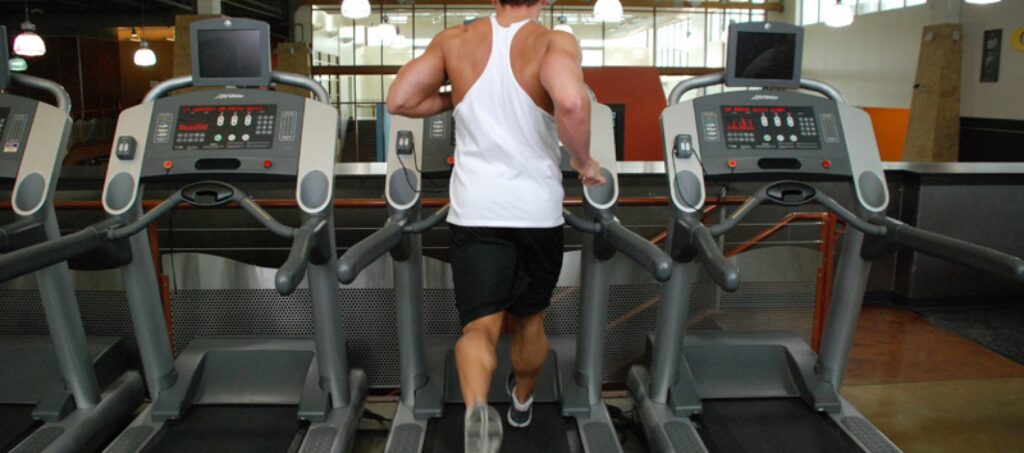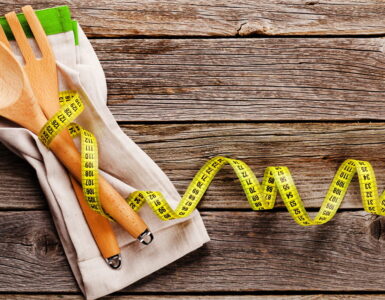Page Contents
Calorie Deficit but Not Losing Weight
If you experience a calorie deficit but don’t lose weight, there are a few possible explanations. It could be that you’re not tracking your calories accurately, you’re overestimating how many calories you burn each day, or you have a slow metabolism. Other possible reasons include eating less protein, ‘clean’ eating or doing keto, muscle growth and increased bone density, weighing at different times each day, retaining water, your menstrual cycle, not sleeping enough, increased stress levels, or your weighing scale is lying to you. In women, polycystic ovary syndrome and numerous hormonal changes can also impact weight loss.
If you’re in a calorie deficit but not losing weight bodybuilding, the first step is to reassess your calorie intake and make sure you’re accurately tracking everything you put in your mouth. Once you’re confident that you’re in a calorie deficit, there are a few other potential explanations for why the weight loss isn’t happening.
It’s possible that you’re overestimating how many calories you’re burning each day. This can happen if you don’t account for all of the activity you do in a day, or if you underestimate how many calories you burn while working out. If you’re not sure how many calories you’re actually burning, it might be helpful to use a calorie tracking app or wearable device that can track your activity level.
Calorie Deficit To Lose Weight: Is It Important?
The calorie deficit is often cited as the most important factor for weight loss. And while it is true that a calorie deficit is necessary to lose weight, it’s not the only factor that matters. In fact, there are a number of other factors that can impact your ability to lose weight, even if you are in a calorie deficit.
For example, if you’re not getting enough protein, you may not lose weight even if you are in a calorie deficit. This is because protein is necessary for muscle growth and maintenance, and without it, your body will break down muscle for energy instead of fat.
Additionally, if you’re not sleeping enough or if you’re stressed, your body may not be able to efficiently burn fat for energy. This is because sleep and stress hormones can impact your metabolism.
So, while a calorie deficit is necessary for weight loss, it’s not the only factor that matters. If you’re not losing weight despite calorie deficit and exercise, consider other factors such as protein intake, sleep, and stress levels.
You’re Not Tracking Your Calories Accurately
If you’re not tracking your calories accurately, you’re likely not in the calorie deficit that you think you are. This means that you won’t lose weight, even if you are eating less than you think you are.
The best way to make sure you’re tracking your calories accurately is to use a food journal or calorie tracking app. This way, you can log everything you eat and drink throughout the day and get an accurate calorie count.
If you’re not sure how many calories you should be eating, there are a number of online calculators that can help you estimate your calorie needs based on your age, height, weight, and activity level.
You’re Overestimating How Many Calories You Burn Each Day
If you’re overestimating how many calories you burn each day, you may not be in the calorie deficit that you think you are. This means that you won’t lose weight, even if you are eating less than you think you are.
There are a few ways to make sure you’re not overestimating your calorie burn. First, use a calorie tracking app or wearable device to track your activity level throughout the day. This can give you a more accurate estimate of how many calories you’re actually burning.
Second, consider using a heart rate monitor when you work out. This can help you make sure you’re not overestimating your calorie burn.
Finally, make sure you’re accounting for all of the activities you do in a day. This includes things like walking, housework, and even fidgeting. All of these activities can add up and impact your calorie burn for the day.
Slow Metabolism
A slow metabolism can make it more difficult to lose weight, even if you are in a calorie deficit. This is because your body burns fewer calories at rest, which means you have to eat less to lose weight.
There are a few ways to increase your metabolism, such as exercising regularly, eating more protein, and eating smaller meals more frequently. Additionally, certain supplements can also help boost your metabolism.
If you think you have a slow metabolism, talk to your doctor or a registered dietitian to see if there are any ways to increase your calorie burn.
You’re Eating Less Protein
If you’re not eating enough protein, you may not lose weight even if you are in a calorie deficit. This is because protein is necessary for muscle growth and maintenance, and without it, your body will break down muscle for energy instead of fat.
The best way to make sure you’re getting enough protein is to include a source of it at every meal. Good sources of protein include meat, fish, poultry, eggs, dairy, beans, and nuts.
If you’re not eating enough protein, consider adding more of it to your diet or taking a protein supplement.
You’re Eating ‘Clean’ or Doing Keto
If you’re eating “clean” or following a ketogenic diet, you may not lose weight even if you are in a calorie deficit. This is because these types of diets often lead to an increase in water weight.
Water weight is the amount of water your body retains and it can fluctuate based on a number of factors, including diet, sodium intake, and hormone levels.
If you’re eating “clean” or following a ketogenic diet, make sure you’re drinking enough water and eating enough salt to prevent dehydration and electrolyte imbalances.
Muscle Growth And Increased Bone Density
You might be gaining muscle or increasing your bone density, hence not losing weight with calorie deficit. This is because muscle and bone are more dense than fat, so they weigh more.
The best way to determine if you’re gaining muscle or increasing your bone density is to have your body composition tested. This can be done with a DEXA scan or bioelectrical impedance analysis.
If you’re gaining muscle or increasing your bone density, you may not need to lose any more weight. However, if you’re looking to lose weight, you may need to increase your calorie deficit.
You’re Weighing At Different Times Each Day
Your weight can fluctuate based on a number of factors, including hydration levels, food intake, and hormone levels. For this reason, it’s important to weigh yourself at the same time each day.
If you’re weighing yourself at different times each day, you may not be seeing an accurate picture of your weight loss. Try to weigh yourself at the same time each day, in the morning after you use the bathroom and before you eat or drink anything.
You’re Retaining Water
Not losing weight on calorie deficit might be indicative of a more serious problem like water retention. Water retention is when your body holds onto extra water. This can make you look and feel bloated, and it can also lead to a temporary increase in weight.
There are a few things that can cause water retention, including sodium intake, hormonal changes, and certain medications. In such cases, it might be your body water not fat that makes it seem like you’re not losing weight. If you think it is water retention that gets in the way of your weight loss, talk to your doctor.
Your Menstrual Cycle
If you’re a woman, your weight can fluctuate based on your menstrual cycle. This is because hormonal changes can cause water retention and bloating.
If you’re trying to lose weight, it’s best to weigh yourself at the same time each day, in the morning after you use the bathroom and before you eat or drink anything. This will help to give you an accurate picture of your weight loss.
You’re Not Sleeping Enough
If you’re not sleeping enough, you may not lose weight even if you are in a calorie deficit. This is because sleep is important for regulating hormones, and without it, your hormone levels can become imbalanced.
Sleep deprivation can also lead to increased hunger and cravings, and it can make you more likely to overeat. If you’re not sleeping enough, try to get at least 7-8 hours of sleep each night.
Increased Stress Levels
If you’re stressed, you may also have trouble losing weight. This is because stress can lead to hormonal imbalances, and it can also make you more likely to overeat.
If you’re trying to lose weight, it’s important to find ways to manage your stress. This can include body composition activities, meditation, and spending time with friends and family.
Your Weighing Scale Is Lying To You
If you’re not losing weight even though you’re in a calorie deficit, it’s possible that your weighing scale is lying to you. This is because many scales are inaccurate, and they can show a higher or lower weight than you actually are.
If you’re concerned that your scale is inaccurate, try to find a more accurate one. You can also use other methods to track your weight loss, such as measuring your waist circumference.
Polycystic Ovary Syndrome
If you have polycystic ovary syndrome (PCOS), you may not lose weight even if you are in a calorie deficit. This is because PCOS can lead to hormonal imbalances, and it can also make it more difficult to lose weight.
If you have PCOS and you’re trying to lose weight, talk to your doctor about the best way to manage your condition.
Numerous Hormonal Changes In Women
If you’re a woman, your weight can fluctuate based on numerous hormonal changes. This includes changes during your menstrual cycle, pregnancy, and menopause.
If you’re trying to lose weight, it’s important to weigh yourself at the same time each day, in the morning after you use the bathroom and before you eat or drink anything. This will help to give you an accurate picture of your weight loss.
There are a number of reasons why you might not be losing weight even though you’re in a calorie deficit. This can include water retention, hormonal changes, sleep deprivation, and stress. If you’re concerned that you’re not losing weight, talk to your doctor.
Menopause
If you’re a woman, your weight can fluctuate during menopause. This is because of hormonal changes that occur during this time.
If you’re trying to lose weight, it’s important to weigh yourself at the same time each day, in the morning after you use the bathroom and before you eat or drink anything. This will help to give you an accurate picture of your weight loss.
Exercising And Calorie Deficit But Not Losing Weight
If you’re exercising and in a calorie deficit but not losing weight, there are a few possible explanations.
It’s possible that you’re not tracking your calories accurately, you’re overestimating how many calories you burn each day, or you have a slow metabolism. It’s also possible that you’re eating less protein than you should be, you’re eating ‘clean’ or doing keto, or you’re retaining water.
If you’re not losing weight, talk to your doctor to rule out any medical conditions. You can also try increasing your protein intake, sleeping more, and reducing your stress levels.
You Are Eating Too Little
If you’re in a calorie deficit but not losing weight, it’s possible that you’re eating too little. This can happen if you’re not tracking your calories accurately, or if you have a slow metabolism.
If you think you might be eating too little, try increasing your calorie intake by 100-200 calories per day and see if you start to lose weight. If you’re still not losing weight, talk to your doctor.
You Are Consuming The Wrong Foods
If you’re in a calorie deficit but not losing weight, it’s possible that you’re consuming the wrong foods conducive to weight gain and fat percentage increase. This can happen if you’re eating too many processed foods, sugary foods, or unhealthy fats.
If you think you might be consuming the wrong foods, try to eat more whole foods, including fruits, vegetables, lean protein, and healthy fats. You can also try cutting out processed foods, sugary foods, and unhealthy fats.
Not Lifting Weights
If you’re not lifting weights, you may not lose weight even if you’re in a calorie deficit. This is because muscle tissue burns more calories than fat tissue.
If you want to lose weight, and get rid of visceral fat, in particular, it’s important to include strength training in your workout routine. This will help you build muscle and burn more calories.
You Are Doing Too Much Cardio
If you’re doing too much cardio, you may not lose weight even if you’re in a calorie deficit. This is because cardio can cause your body to hold onto water.
If you want to lose weight, it’s important to include strength training in your workout routine. This will help you build muscle and burn more calories. You can also try reducing your cardio workouts to 20-30 minutes per day.
When You Think You’re In A Calorie Deficit But Not Losing Weight
When you think you’re in a calorie deficit but not losing weight, there are a few possible explanations. It’s possible that you’re not tracking your calories accurately, you’re overestimating how many calories and fat you burn each day, or you have a slow metabolism. It’s also possible that you’re eating less protein than you should be, you’re eating ‘clean’ or doing keto, or you’re retaining water.
If you’re not losing weight, talk to your doctor to rule out any medical conditions. You can also try increasing your protein intake, sleeping more, and reducing your stress levels.
What Should My Calorie Deficit Be?
There is no one-size-fits-all answer to this question. The calorie deficit that works for one person may not work for another.
It’s important to experiment and find the calorie deficit that works best for you. Start with a small calorie deficit and gradually increase it until you start to lose weight and see desired results.
What Is A Good Calorie Deficit For Weight Loss?
There is no one-size-fits-all answer to this question. The calorie deficit that works for one person may not work for another.
It’s important to experiment and find the calorie deficit that works best for you. Start with a small calorie deficit and gradually increase it until you start to see results.
How Much Of A Calorie Deficit Is Too Much?
There is no one-size-fits-all answer to this question. The calorie deficit that works for one person may not work for another.
It’s important to experiment and find the calorie deficit that works best for you. Start with a small calorie deficit and gradually increase it until you start to see results.
How To Create A Calorie Deficit?
There are a few different ways to create a caloric deficit. You can eat fewer calories, exercise more, or do a combination of both.
If you want to lose weight, it’s important to find the calorie deficit that works best for you. Start with a small calorie deficit and gradually increase it until you start to see results.
Consume Less Food
One of the easiest ways to create a calorie deficit is to consume less food. This can be done by eating smaller meals, cutting out snacks, and reducing your portion sizes.
If you want to lose weight, it’s important to find the calorie deficit that works best for you. Start with a small calorie deficit and gradually increase it until you start to see results.
Exercise More
Another way to create a calorie deficit is to exercise more. This can be done by adding more cardio to your workout routine or increasing the intensity of your workouts.
If you want to lose weight, it’s important to come up with an exercise complex that works best for you.
Combine Fewer Calories And Exercising
You can also create a caloric deficit by combining fewer calories with more exercise. This means eating fewer calories and exercising more.
If you want to lose weight, it’s important to find the calorie deficit that best works for you. Start with a small calorie deficit and gradually increase it until you start to see results. And exercise, exercise, and exercise!
Conclusion
When you think you’re in a caloric deficit but not losing weight, there are a few possible explanations. It’s possible that you’re not tracking your calories accurately, you’re overestimating how many calories you burn each day, or you have a slow metabolism. It’s also possible that you’re eating less protein than you should be, you’re eating ‘clean’ or doing keto, or you’re retaining water.
If you’re not losing weight, talk to your doctor to rule out any medical conditions. You can also try increasing your protein intake, sleeping more, and reducing your stress levels. Experiment and find your calorie deficit. Start with a small and then figure out what steps to take to achieve big results.







